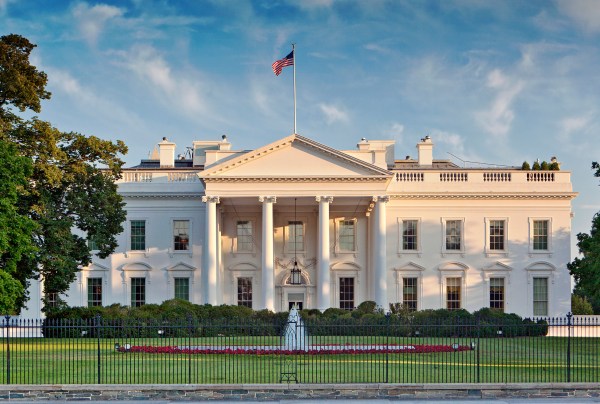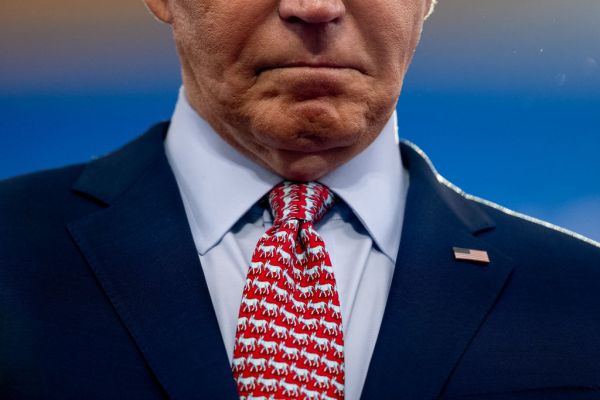On Saturday night, Mike Pence unleashed his anger at Donald Trump.
“History will hold Donald Trump accountable for January 6,” Pence declared at the Gridiron Dinner, a normally jovial event for prominent journalists. “Make no mistake about it: What happened that day was a disgrace, and it mocks decency to portray it in any other way. President Trump was wrong. His reckless words endangered my family and everyone at the Capitol that day.”
Now, Pence is right to be angry about January 6. Trump put his exceedingly loyal vice president in a horrible position: Be faithful to the president and his base or be loyal to the Constitution and the country.
This was, no doubt, a painful choice for Pence. And Pence did the right thing by refusing to play along with Trump’s scheme. But it’s worth remembering that Pence’s decision on January 6 was shocking to a lot of people because he spent four years being a loyal cheerleader for Trump, through the president’s countless scandals.
It’s also worth remembering that, really, it was the least Pence could do.
So, while I am glad and grateful for what he did, some of the praise feels excessive. If all your friends decide to rob a bank but you refuse to go along, that’s great. But there’s no heroism in choosing not to rob a bank. After all, not all painful choices are necessarily hard choices.
That’s what makes his show of anger at Trump now so discomfiting. He says “history will hold Donald Trump accountable” for the events of January 6. I am confident he’s right. But it will take longer for that to happen because Pence has little interest in helping history reach its conclusion.
For over a year, he’s held back on expressing his anger about Trump putting his life in danger and inviting a constitutional crisis. Why? It seems hard to believe he was waiting for new facts to emerge since he was in possession of many of those facts.
Pence wanted nothing to do with the House January 6 committee, insisting that it had no right to his testimony. “I believe it will establish a terrible precedent for the Congress to summon a vice president of the United States to speak about deliberations that took place at the White House,” he said in November.
Yet when the Justice Department issued a subpoena for his testimony, he found another excuse: He couldn’t help with that investigation because he was a member of the legislative branch on January 6.
“On the day of January 6, I was acting as president of the Senate, presiding over a joint session, described in the Constitution itself,” Pence said last month. “And so, I believe that that Speech and Debate Clause of the Constitution actually prohibits the executive branch from compelling me to appear in a court, as the Constitution says, or in any other place. And we’ll stand on that principle and we’ll take that case as far as it needs to go, if need be to the Supreme Court of the United States, because to me, it’s—it’s an issue of the separation of powers.”
In other words, when the legislative branch wanted him to explain what he knows, he said he couldn’t because he’s a member of the executive branch. When the executive branch asked, Pence was suddenly a member of the legislative branch.
Now, as a constitutional matter, neither argument alone is ridiculous. But taken together, he’s basically trying to be the Schrödinger’s cat of vice presidents.
If he were really interested in helping history hold Trump accountable, I’m sure the Justice Department—or the January 6 committee before it—would have been happy to rescind the subpoenas in exchange for his voluntary testimony.
And there’s the problem of asking “history”—which has a lot of stuff on its plate—to do the job he’s unwilling to do. He knows the facts. He knows that since January 6, Trump has called for the suspension of the Constitution to reinstall him as president.
While he hasn’t formally declared he’s running for president, his team all but admits preparing the ground, about how he’s better positioned than Florida Gov. Ron DeSantis and the like.
Shouldn’t someone running for president be able to tell the truth—and vent his anger—without so much hemming and hawing and political calculation?









Please note that we at The Dispatch hold ourselves, our work, and our commenters to a higher standard than other places on the internet. We welcome comments that foster genuine debate or discussion—including comments critical of us or our work—but responses that include ad hominem attacks on fellow Dispatch members or are intended to stoke fear and anger may be moderated.